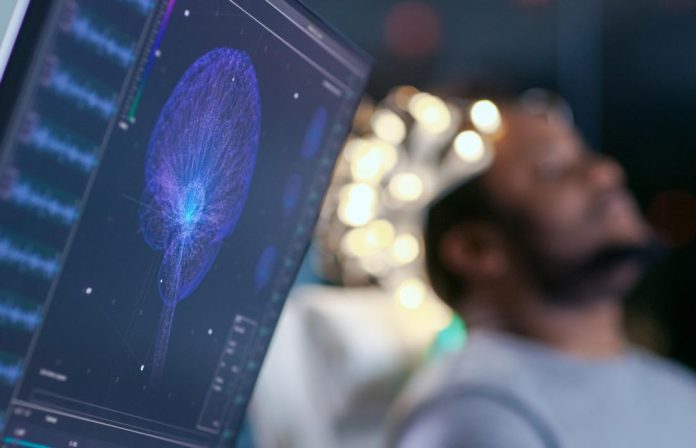A recent study conducted by Dr. Kenneth Hugdahl from the University of Bergen involved submitting schizophrenics who were suffering from auditory hallucinations to an fMRI to observe neural activity during these symptoms. According to the study, schizophrenics who are experiencing auditory hallucinations have difficulty hearing actual, real voices when they are experiencing both at the same time.
“The patient experiences the inner voices as 100 per cent real, just as if someone was standing next to him and speaking…At the same time, he can’t hear voices of others actually present in the same room,” said Dr. Hugdahl, summarizing an experiment in which he was able to observe spontaneous neuron activation in the temporal lobes (the part of the brain responsible for speech perception) of schizophrenics.
The professor found that when schizophrenics were subjected to real human speech and the “sounds” of their hallucinations, neural activity in this part of the brain altogether; a finding is quite counterintuitive, to say the least. The study consisted of a meta-analysis of 23 studies focusing “either on spontaneous inner-voice triggered neural activation in subjects with schizophrenia or the stimulatory reaction prompted by actual sounds in both healthy and schizophrenic subjects”. the researchers found the following:
It emerged that many researchers had observed either that a spontaneous activation of neurons occurs in patients hearing inner voices or that the patients’ perception of actual voices becomes suppressed when these are heard simultaneously with inner voices. No one had seen the connection between these findings.
“Previously, we thought these were two separate phenomena. But our analyses revealed that the one causes the other: when neurons become activated by inner voices it inhibits perception of outside speech. The neurons become ‘preoccupied’ and can’t ‘process’ voices from the outside,” explains Professor Hugdahl.
“This may explain why schizophrenic patients close themselves off so completely and lose touch with the outside world when experiencing hallucinations,” he purports.
The researchers correlated this finding with malfunctioning frontal lobes in schizophrenic brains. They concluded that schizophrenics suffer from a lack of impulse control because of this, and struggle to filter out inner voices. The researchers developed an app whose purpose is to help schizophrenics learn to block out these voices. The hallucinating patient wears headphones in which different sounds are played in which earpiece, and the patient concentrates on “hearing” one sound and ignoring the other. He explains:
“The voices are still there, but the test subjects feel that they have control over the voices instead of the other way around. The patient feels it is a breakthrough since it means he can actively shift his focus from the inner voices over to the sounds coming from the outside,”








